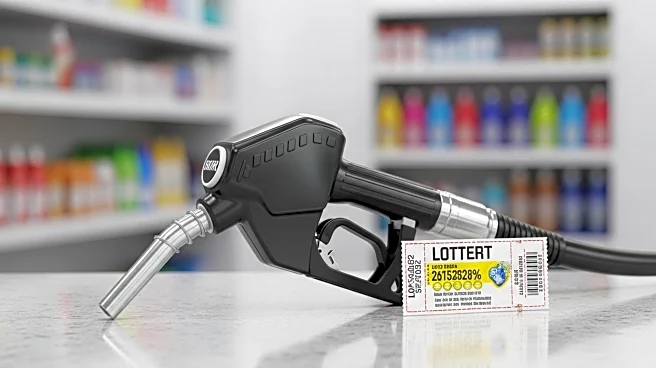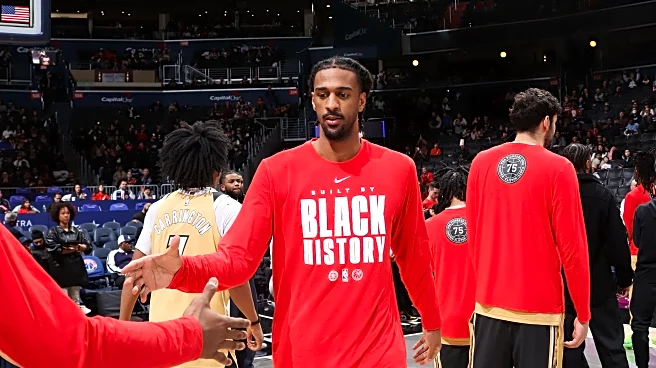What's Happening?
A gas station owner in Turlock has observed a decrease in Powerball ticket sales, even as the jackpot has surpassed $1 billion. This trend is surprising given the typically high interest in lottery tickets when jackpots reach such significant amounts. The owner, Nina Burns, has noted that despite the potential for a massive payout, customer enthusiasm has not matched previous high jackpot periods. This decline in sales could be attributed to various factors, including economic conditions or changes in consumer behavior.
Why It's Important?
The decline in Powerball ticket sales, despite a record-breaking jackpot, could have broader implications for lottery revenue and state funding. Lotteries often contribute significant funds to public services such as education and infrastructure. A sustained decrease in sales might impact these contributions, prompting states to reassess their reliance on lottery income. Additionally, this trend may reflect changing consumer priorities or economic pressures, which could influence other sectors reliant on discretionary spending.
What's Next?
If the trend of declining lottery sales continues, stakeholders may need to explore strategies to boost consumer interest. This could involve marketing campaigns or changes to the lottery format to make it more appealing. Additionally, state governments might consider alternative funding mechanisms to compensate for potential shortfalls in lottery revenue. Observing consumer behavior in response to future jackpots will be crucial in understanding and addressing this issue.
Beyond the Headlines
The decrease in lottery sales amidst a high jackpot raises questions about consumer confidence and economic stability. It may indicate a shift in how individuals prioritize spending, possibly due to broader economic uncertainties. This situation could also prompt discussions on the ethical implications of lotteries as a funding source, considering their impact on lower-income communities.











